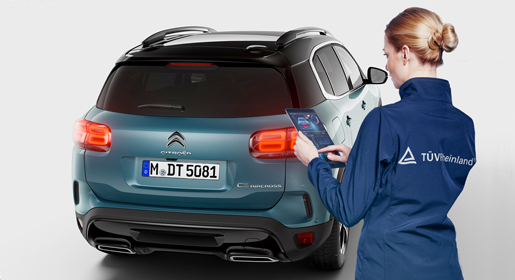Citroën reliability confirmed by the Germans

An annual report of cars studied during the technical inspections carried out in Germany is proving that the results are contrary to what is stated in the media. The latest study published a few days ago is proving that bad buzz and bad faith do not make reality.
In Germany, cars must undergo a technical inspection after their third year of existence and every two years thereafter. The tests carried out by the Technischer Überwachungsverein organization, more commonly known as TÜV, are reputed to be more difficult than the tests carried out in France, with a rejection rate of around 20%.
Each year, the TÜV publishes a complete list of models that have passed the technical inspection in the last twelve months, which it then classifies by age of 4-5 years, 6-7 years, 8-9 years, etc. This allows us to have a very precise inventory of the exact reliability of the cars studied during their life, in real use, by an independent and, at the time, irreproachable organization that cannot be accused of favoritism.
The latest results released for the year 2024 show that the Honda Jazz, Porsche 911 and other Audi Q2 are the best rated cars, i.e. those that are the least rejected, while Tesla and Dacia models are the most rejected.
For cars less than three years old, it is the Tesla Model 3 that is the most rejected with a failure rate of 14.2% ahead of the Ford Mondeo (13.2%) and the Skoda Scala (11.8%).
For cars over three years old, the Tesla Model 3 is also among the lowest rated cars for cars 4-5 years old with a failure rate of 19.7% ahead of the VW Sharan and the BMW 5 and 6 series, both with a failure rate of 17.7%.
For cars over 5 years old, Dacias (Dokker, Sandero and Duster) are the ones that have the worst ratings for cars aged 6 to 11 years old with soaring failure rates ranging from 26.5% for the Dacia Dokker (car aged 6-7 years) to 39.6% for the Dacia Logan (aged 10-11 years). The Dacia Duster is also badly placed with a failure rate ranging from 24% to 34% depending on the age group.
Of all the cars tested and for all age groups, Citroën models are absent from the lowest rated vehicles. While not leading in the best ratings, the study shows that the brand’s models are far from being the worst.
This, combined with other studies, including that of Leocare, indicate that Citroën was the most reliable French brand. It helps to counteract the bad press about Citroën engines and airbags. Yes, Citroën is not free of defects (what brand is), but the countless reports and posts on social networks bashing Citroëns are clearly not based on true elements but are only rumours attracted by the bad buzz that has unfortunately surrounded the brand for some time.
It is good to call upon studies by independent organizations, masters of their subject, to separate truth from fake news. In this, the latest TÜV study, it shows that Citroëns, of whatever age are reliable cars, whether or not they are even equipped with PureTech engines or Takata airbags.
